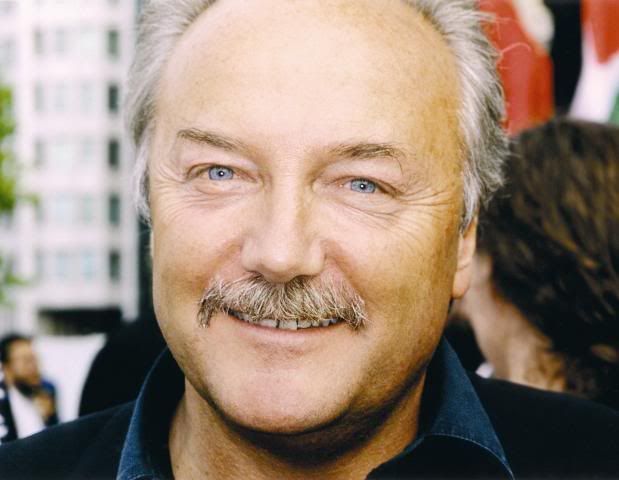
George Galloway, principle representative of the Respect Renewal organisation, has made a number of statements in recent weeks that should trouble those of us who hold principled support for gay rights a cause of worthy support.
On the Wright Stuff Show on Channel Five, Galloway comments on the Independent story "peers call upon Smith to halt deportation of gay Iranian". The article highlights the potential deportation of a gay Iranian, Mehdi Kazemi, from the United Kingdom and the subsequent struggle to prevent this.
Galloway first comment is that "all the papers seem to imply you get executed from Iran for being gay. That's not true" [1]. To understand the factual inacuracy of this statement an overview of the Iranian legal code is needed.
Were Galloway to examine the legal status of those engaging in same-sex sex acts in Iran he would find that his analysis is far from correct. The legal status of Lesbian and gay men in Iran today is established during a period between July 1991 to November of the same year, during which a modified Iran Criminal Code is ratified [2] Articles 108-140 of this criminal code identify the crime of homosexual and lesbian sex acts and the appropriate punishment for those said to have commited them.
For the purpose of understanding these section of the Iranian Criminal Code three translations have been examined, including that supplied by the Iranian Queer Organisation (IRQO) the Movement for the Establishment of Human Rights in Iran (MEHR) and finally the UN Refuge Agency.
We find within these 32 articles an identification of both particular forms of crime pertaining to gay men and lesbian women (identified as Lavat and tafkhiz and Mosaheqeh) alongside an associated punishment of Hadd.
Within the penal code the term Lavat encompasses an understanding of Sodomy as "sexual intercourse with a male". This remains an act identified as a form of Hadd offense, these are serious offenses identifiable in reference to specific punishments. In this instance it is death to be decided by individual Sharia judges having "confessed four times" to having committed the offense [3].
According to the translation provided by all three documents, the criminalisation of same-sex acts is not limited to sodomy. The Islamic Penal Law also stipulates crimes for Tafhiz, defined here as "the rubbing of the thighs or buttocks" committed by two men. This is a crime understood alongside other forms of homosexual act such as the act of a man "kiss(ing of) another with lust".
These crimes are understood as subject to a form of Ta’azir. Ta'azir crimes are understood as involving punishments ranging from six to nighty nine lashes the first three times, the fourth time however "the punishment ... would be death" [3]
Lesbianism is conceptualised within the Iranian Penal Code as "homosexuality of women by genitals". Defined as 'Mosaheqeh' within the translation provided by the Iranian Queer Organisation [4].
Lesbianism remains distinct from male homosexuality within the criminal code. Feminist authors Julie Dorf and Gloria Careaga note that "legal distinction between gay men and lesbianism is that sodomy is defined as uniquely male" [6].
As for lavat and takfhiz, the punishment for moshahegeh involves a form of Ta'azir punishment, 100 lashes for each party, the first three times a confession is gained, while a death sentence will be issued the fourth time [3].
As the original Independent article notes, Medhi's former partner has been executed within Iran. In response Galloway makes the claim that Parham, Mehdi's boyfriend was hung "not for being crime. for committing. um. six crimes. er. against young men" [1]. Pausing briefly to expand upon this point a number of points are worthy of consideration.
In a statement released by Mehdi he notes that "I was 15 years old when I started dating one of my class mates in school. His name was Parham" [7]. What followed was a relationship that lasted up until the point at which around March 2006 Parham had been arrested and mentioned Mehdi's name to the government under 'interrogation'.
The first point worth making is that there is no way of ascertaining if Parham was executed for the crimes stipulated within the Iran Criminal Code, however this execution was committed in a context in which, as queer organization Outrage! note:
Claims of rape are made to save the family's honour or to save the passive partner from execution, and are part of an Iranian government propaganda offensive to scapegoat and demonise gay peopleIn this context, it seems a highly credible explanation that Parham was executed for the crime of homosexuality, and his naming of Mehdi as involved in these acts would seem to have formed part of this investigation into this offense.
Speaking at the 2008, March 15th Stop the War demonstration Galloway commented, in reference to protests from the audience, that “the khaki war machine now has its pink contingent” [8]. This remains a slur on those anti-war activists who combine principled opposition to Invasion of Iran with a commitment to the rights of those Lesbian and Gay individuals within Iran George Galloway seems not to recognise.
[1] http://www.youtube.com/watch?v=Ou1es7fNTpk
[2] http://www.iranian.com/Opinion/2005/December/Homosexuality/index.html
[3] http://www.unhcr.org/cgi-bin/texis/vtx/refworld/rwmain?docid=3ae6b51b8
[4] http://www.irqo.net/IRQO/English/islamicpunishment.htm
[5] http://www.unhcr.org/cgi-bin/texis/vtx/refworld/rwmain?docid=3ae6b51b8
[6] [Women's Rights, Human Rights: International Feminist Perspectives: 325]
[7] http://www.irqo.net/IRQO/English/pages/43.htm
[8] http://modernityblog.wordpress.com/2008/03/16/gallway-and-the-colour-pink/